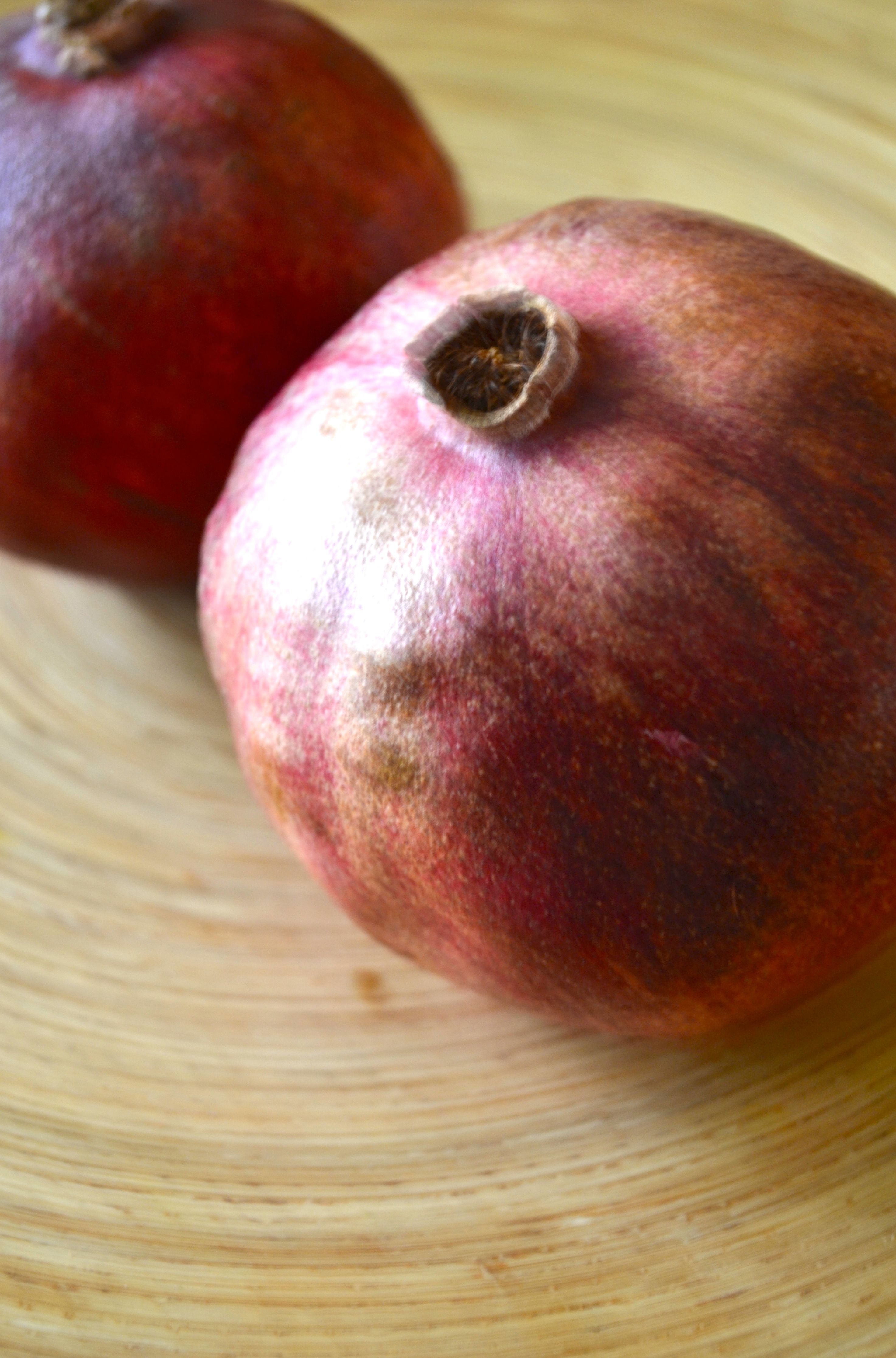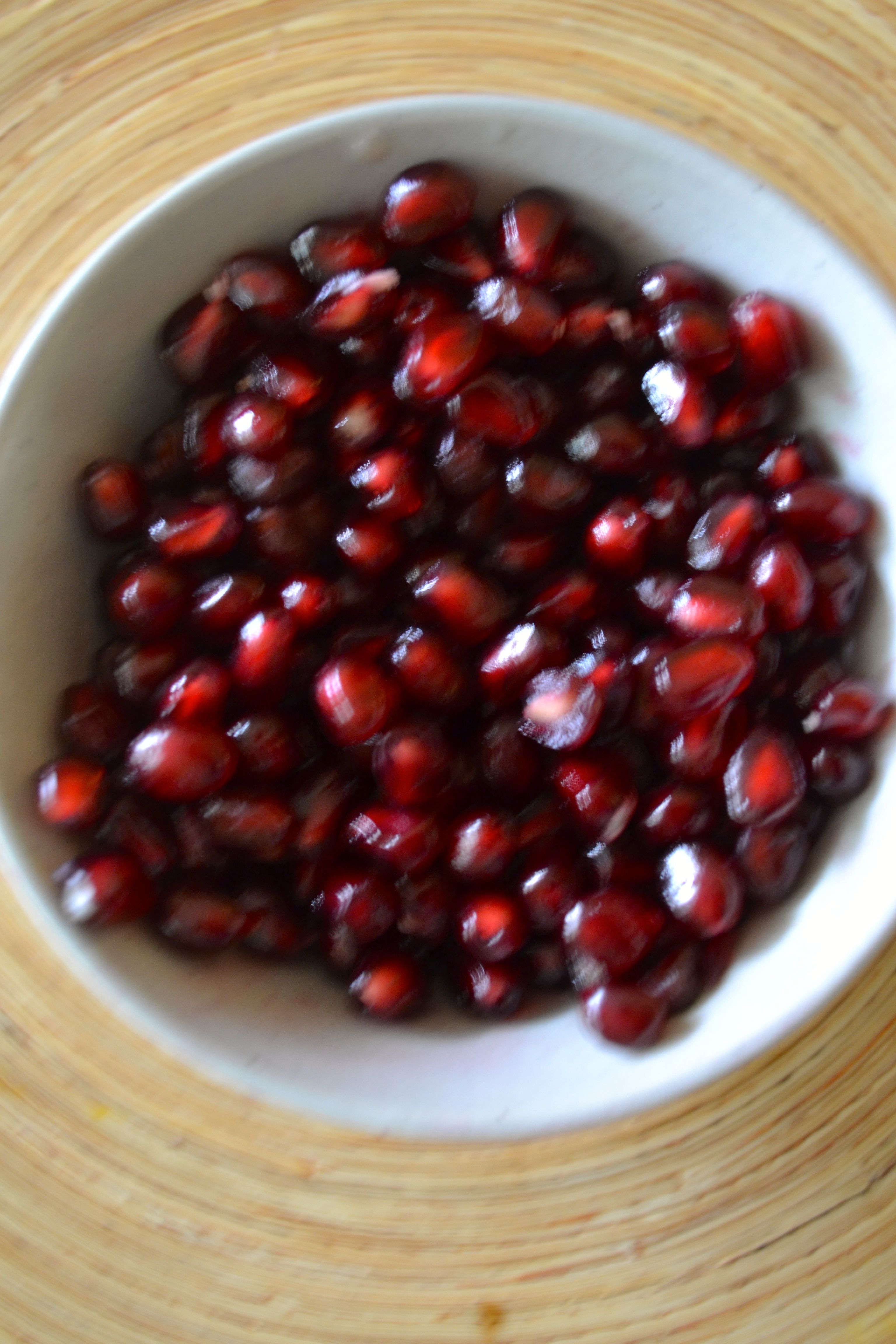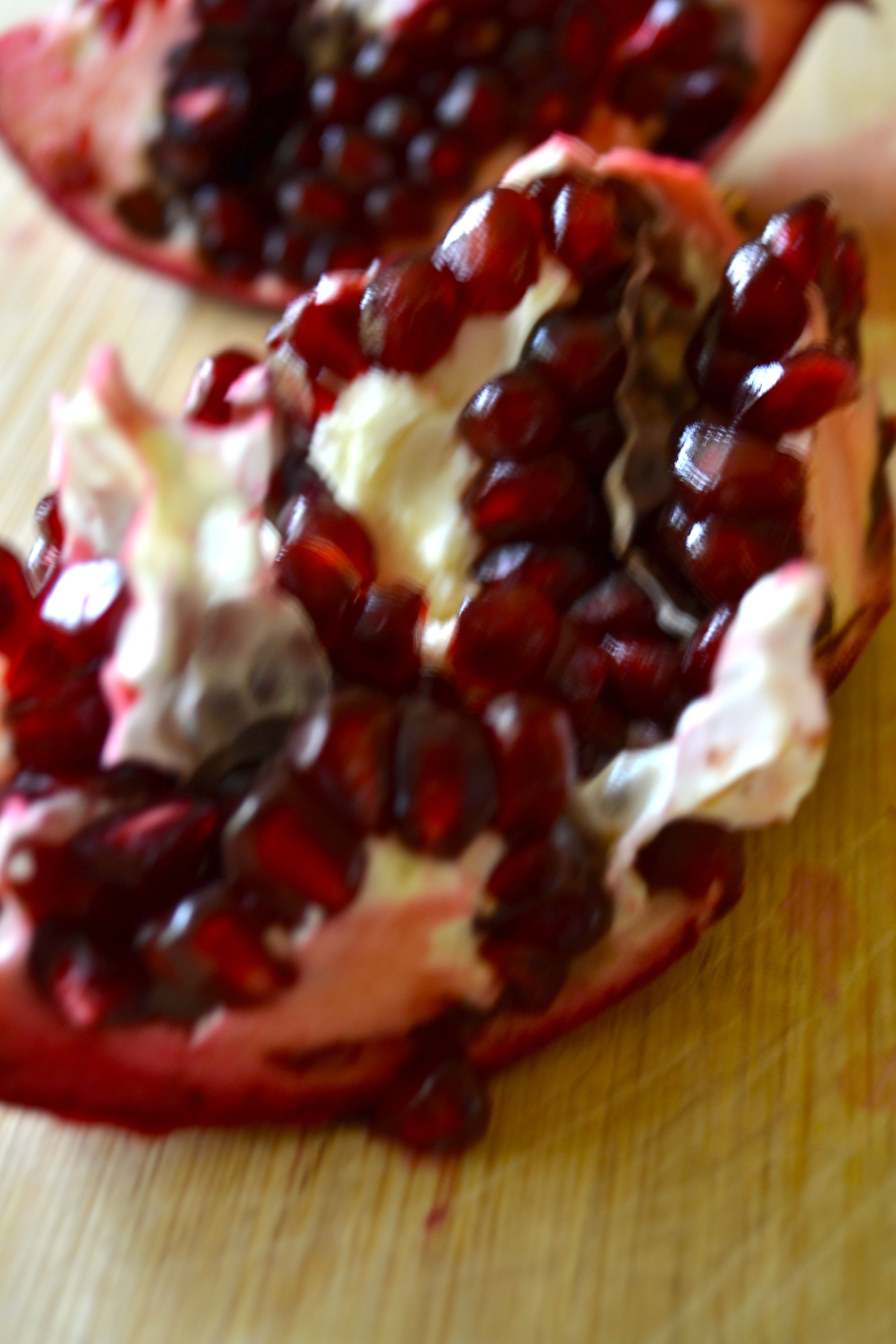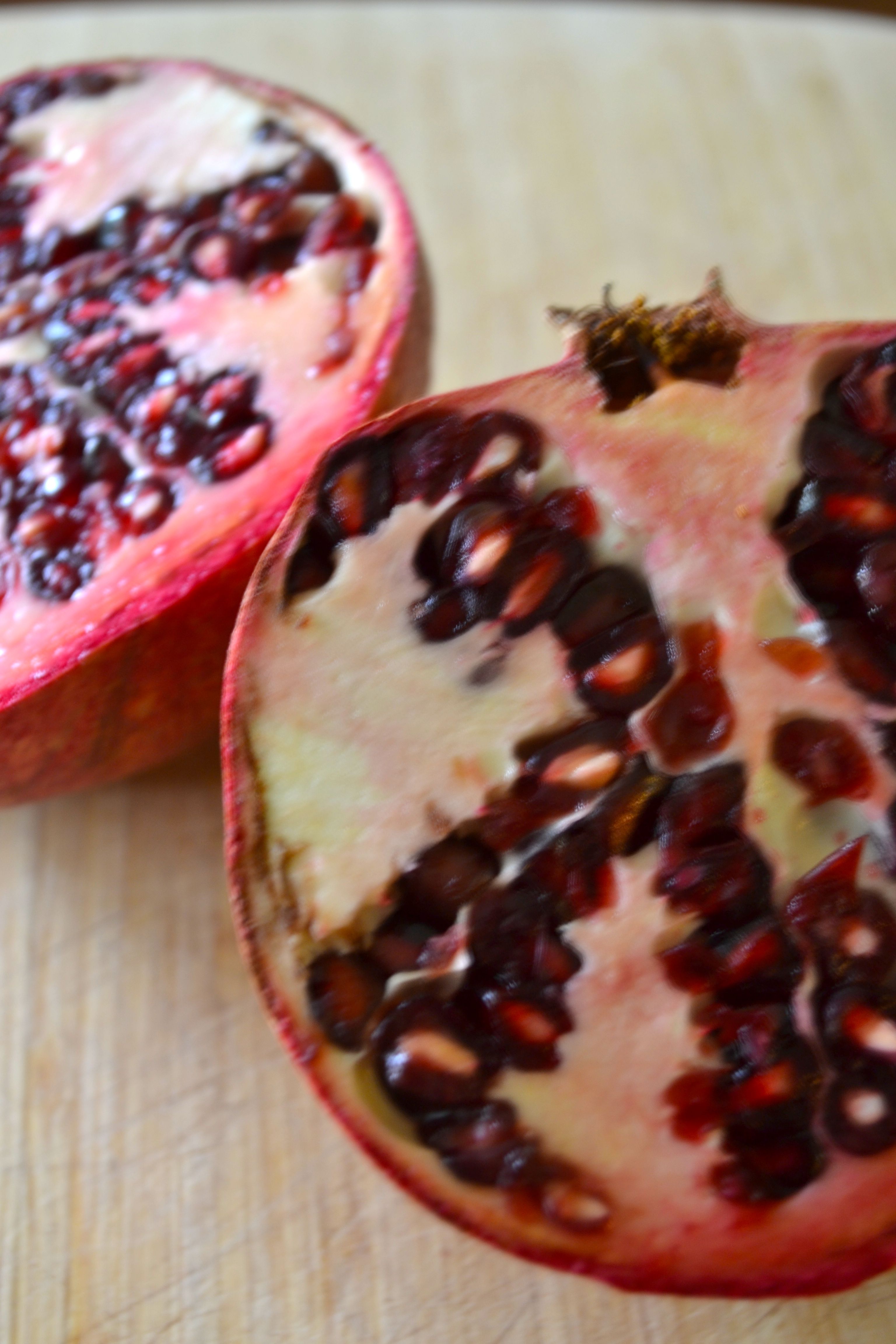Pomegranate bijoux (jewels)
By Neelam Misra,
Pomegranates are one of my favorite fall and winter delights. A cherished fruit from childhood, the romance does not seem to fade. Something about that leathery, weathered skin and the little gemstone fruits obscured within… gut-wrenchingly beautiful. Admittedly, pomegranates do require more labor then your garden-variety apple. The peeling apart of the skin and gentlw nudging of seeds out of their cozy little chambers takes patience. For me, this process is part of the experience of eating the fruit. Anticipation and effort enhance the exquisite taste. I have always enjoyed pomegranate seeds ( by which I mean the red fruit and seed(aril) within), but I have encountered a few pomegranate eaters who spit out the seed. This struck me as a very tedious way to enjoy a fruit that is, let’s face it, at least slightly labor intensive.
I understand that everyone has their preferences, but I started to research the fruit (particularly the seed), and it turns out that the seed is teeming with good-for-you lipids.
Historically, pomegranates have been used for respiratory issues, parasitic and bacterial infections, diarrhea, ulcers, canker sores, and hemorrhage. There are multiple healthful constituents of the pomegranate including the bark, leaves, and root of the plant, the fruit, the juice, the seeds, and the peels. Ellagic acid is the most acclaimed antioxidant found in pomegranates. It has strong antioxidant and anticancer properties. However the synergistic action of multiple pomegranate constituents is thought to be superior to ellagic acid alone, specifically in prostate cancer suppression.
The peel of the fruit has the greatest level of antioxidant activity. Punicalagin and punicalin are ellagitannins found in the peel that are unique to pomegrantes. Ellagitannins can be hydrolyzed by the body to ellagic acid, a renowned antioxidant.
Pomegranate juice is replete with Vitamin C, Vitamin E, coenzyme Q10, lipoic acid, and other antioxidants.
Pomegranate seeds have less antioxidant activity then the fruit or the peel, but they are teeming with good-for-you lipids. They have a unique fatty acid profile distinguished by high levels of linoleic and linolenic acid. Linoleic acid is involved in the production of PGE1 (the anti-inflammatory prostaglandin). Punicic acid is a fatty acid unique to pomegranates and makes up 70-76% of the seed oil. Punicic acid is thought to be an essential component in insulin regulation, blood sugar homeostatis (balance), and obesity related inflammation. ( Warning: about to geek out)




